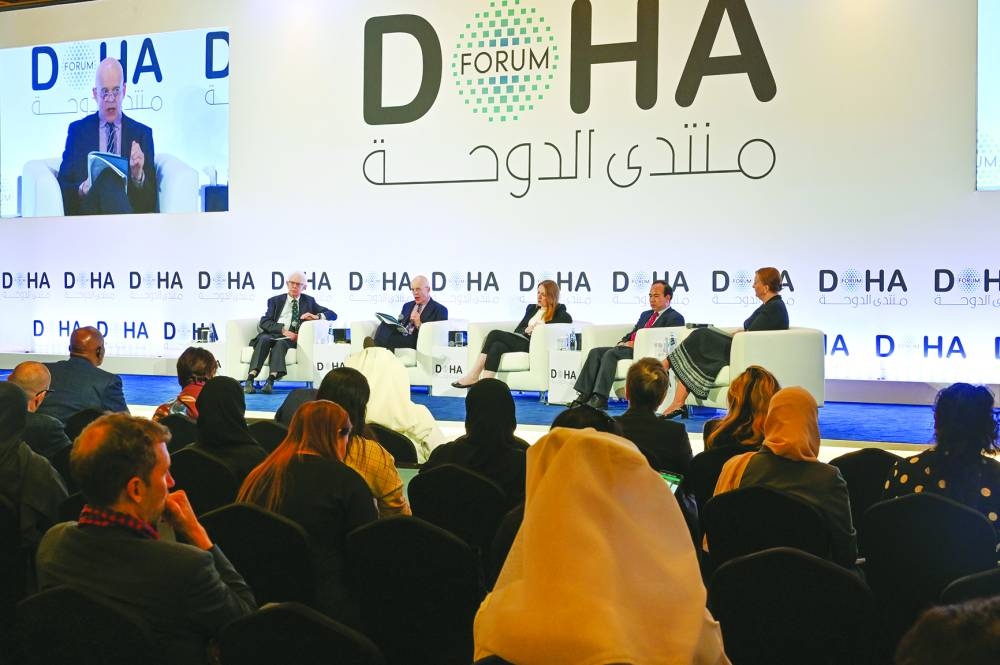The Qatar International Court and Dispute Resolution Centre (QICDRC) hosted a panel discussion, ‘Evolving Jurisdictions of the ICC (International Criminal Court) and ICJ (International Court of Justice), at the Doha Forum, which concluded Sunday.
The session brought together a distinguished group of legal experts to discuss the crucial roles of the ICC and the ICJ in addressing ongoing global conflicts, with a focus on the cases of Palestine and Israel, Sudan, and other current global crises.
Aligning with the UN Sustainable Development Goal 16, the discussion explored the ICC and ICJ’s responses to war crimes, territorial disputes, and breaches of international humanitarian law in regions experiencing acute conflict. Specific attention was given to how international courts navigate the legal challenges surrounding the ongoing conflicts in Palestine and Israel, as well as Sudan.
The panellists highlighted the courts’ jurisdictional limitations and the need for global cooperation to ensure justice and accountability.
The panel was chaired by Lord Thomas of Cwmgiedd, president of QICDRC and former chief justice of England and Wales. Panelists included Sir Adrian Fulford, former Judge of the ICC who conducted its first-ever trial, former vice president of the Court of Appeal (Criminal Division), and advisor to ICC chief prosecutor Karim Khan; Victoria Prentis, former Attorney General of England and Wales; Blinne Ní Ghrálaigh, Barrister specialising in public international law; and Sienho Yee, Professor of International Law and Director, Chinese Institute of International Law at China Foreign Affairs University.
“The ICC and ICJ are indispensable in upholding the principles of justice, especially in cases like Palestine and Israel and Sudan, where the need for accountability and the rule of law are paramount. This panel provided a valuable platform to explore how these institutions can respond effectively to such crises,” said Lord Thomas.
“The conflicts in Palestine and Israel, as well as Sudan, highlight the necessity for robust international legal mechanisms. This session reinforced the importance of adapting these systems to address evolving global challenges and ensure justice is served," according to Fulford.
Qatar
“ICC, ICJ indispensable in upholding the principles of justice in Palestine, Israel and Sudan": QICDRC tells Doha Forum

QICDRC panel discussion on ‘Evolving Jurisdictions of the ICC and ICJ'
